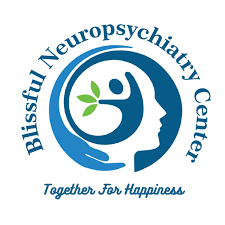You may be surprised to hear about the problem known as somatoform disorder, which can feel very different. You might wonder, what exactly is this condition of mental health?
Somatoform Disorders and “Doctor Shopping”
We essentially associate somatoform disorder with a behavior we call “doctor shopping.” This is when a patient feels the need to visit many different doctors. They might go to a gastroenterologist, a cardiologist, a neurologist, or a chest doctor. They undergo endoscopies, colonoscopies, ultrasounds, blood tests, CT scans, MRIs—all sorts of tests and lab work. But the doctors tell them there’s nothing physically wrong. This leaves the patients feeling hopeless. They think, “If there’s nothing wrong, then why am I suffering like this? What is happening to me?” They cannot find an answer. I have seen many patients who come to me with files spanning four, five, six, or even ten years. They often say, “Doctor, this illness has forced me to sell my house. I’ve sold my land. I even traveled to India for treatment, but the doctors say nothing is wrong. My symptoms are exactly the same. You need to tell me what is truly wrong with me.” They believe they’ve reached their last resort. When I ask them what has happened over ten years, they say, “Nothing has happened; my life is still going on. But my problem has not been solved.”
So, what is somatoform disorder? It is a condition where a person experiences physical symptoms that are fundamentally caused by their mind. We call these physical problems with a mental cause a somatoform disorder.
Common Physical Symptoms
The symptoms can manifest in many ways. For instance, there might be a feeling of headaches or heaviness in the head. The shoulders and other joints may ache intensely. The back can also hurt severely. In the chest, there might be a stabbing or burning sensation. In the abdomen, there is a feeling of gastric issues. Similarly, there may be a burning sensation around the urinary and excretory organs. The hands and feet can tingle, burn, and the body feels extremely tired and exhausted.
What happens next? If a patient feels a headache, they go to a neurologist, get a CT scan and an MRI, but nothing is found. If they feel a lump in their throat, they see an ENT doctor who assures them there’s no lump. When the shoulders and arms hurt, they see an orthopedic doctor, get an X-ray and an MRI, but are told there’s no pinched nerve. When the chest aches with a stabbing sensation, they go to a cardiologist, who performs ECGs, TMTS, and other tests, but finds no issue. If there are stomach problems, they see a gastroenterologist and get an endoscopy, but the reports show nothing more than a minor gastric issue. The prescribed medication doesn’t resolve the symptoms. The same pattern follows for tingling, weakness, and burning in the hands and feet. Doctors perform various tests, but nothing shows up.
The patient is left wondering, “What is wrong with me? Why do I not feel like working? If only this illness would get better, everything in my life would be okay. This one problem has ruined my life.”
This condition can also be linked to other related disorders. For instance, hypochondriasis, where a person fears they have a serious illness. A simple headache can make them think, “Do I have a brain tumor?” Stomach pain can lead to thoughts of “Do I have stomach cancer?” These ideas can be tormenting. Another related condition is body dysmorphic disorder, where a person obsesses over perceived flaws in their appearance. They may think their nose is crooked or their hair is thinning, leading them to repeatedly visit dermatologists and plastic surgeons. There are also pain disorders where a person feels intense pain in a specific area, such as the lower back, even when X-rays and other tests show no physical cause.
Final Thoughts
When a doctor suggests seeing a mental health professional, it can be difficult for the patient to accept. They think, “All my symptoms are physical. Why would I go to a doctor for a mental illness?” This perception is a major barrier. The patient may question, “My legs ache, so why would I go to a mental health doctor? My hands and feet tingle, so why would I go? I have a headache; why would I go to a mental health doctor? My chest feels heavy; why would I go?”
Ultimately, the key to understanding this is that these are not imaginary symptoms. They are genuine physical problems that have a mental cause. A consultation with a mental health professional is not about treating a physical illness. It’s about addressing the underlying psychological issues that are causing the physical distress.




